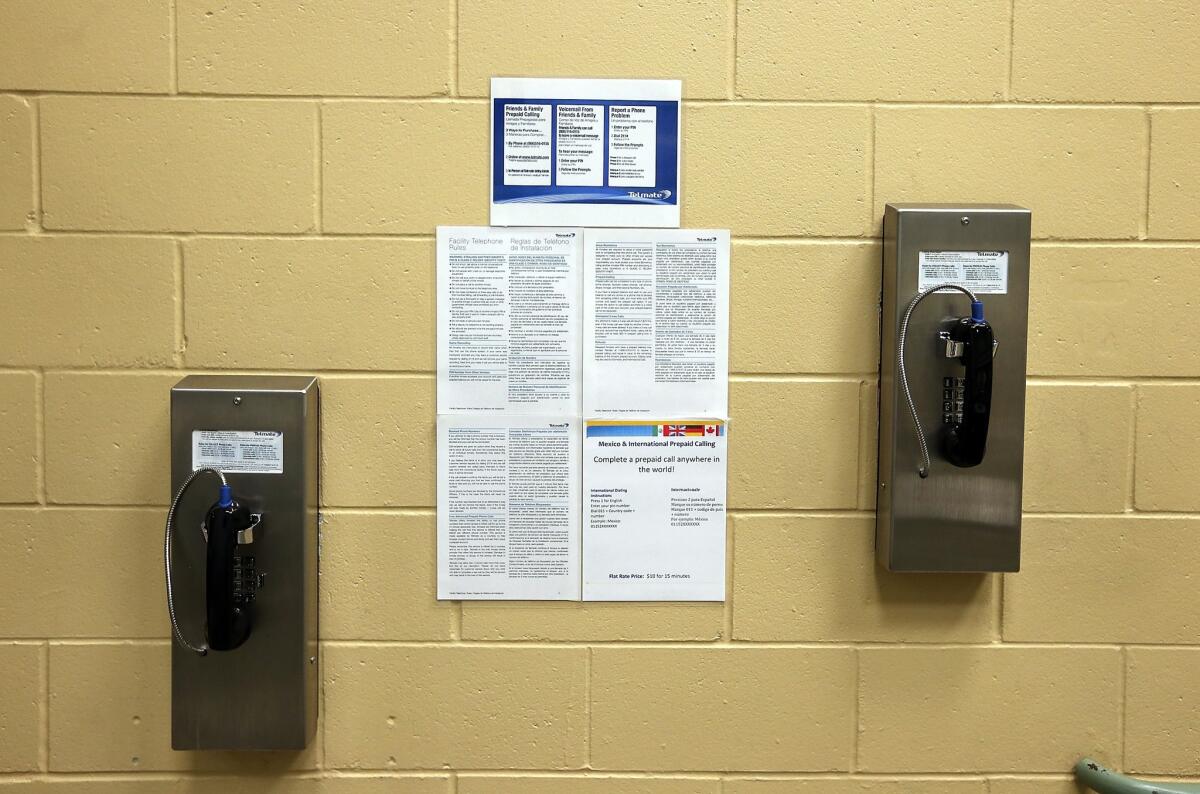Gouged in prison no more

- Share via
After nearly a decade of inaction, the Federal Communications Commission is finally stepping in to regulate how much telephone companies may charge for interstate calls made by prison and jail inmates and immigration detainees. That’s a welcome move that will put an end to an unfair practice that allowed telephone companies to gouge inmates and their families.
Under the new regulations, which were announced late last week, telephone providers may only charge up to 21 cents for a debit or prepaid call within the United States, and up to 25 cents for domestic collect calls made by inmates. That is a huge improvement over the old system, under which telephone companies were free to set rates without any federal oversight. In some cases, a 15-minute call from prison could cost as much as $17 or more. As The Times’ Ricardo Lopez reported, that is more than 10 times the average per-minute rate paid by most phone customers.
The new rule may face legal challenges; one FCC commissioner argued that it would be too complicated and difficult to administer. The solution, however, isn’t to ignore the problem, as the commission did for more than 10 years after the first complaints were filed.
Telecom providers say they have been charging more because a phone system is more expensive to run inside a prison. But surely that high cost would go down if these companies didn’t pay counties and states millions in “commissions” in exchange for monopoly contracts. California, which in 2007 raked in more than $20 million in such commissions, has now phased them out completely; since then, the cost of a 15-minute interstate call has dropped from $17.30 to $6.65, according to the magazine Prison Legal News. The phase-out didn’t apply to the state’s 58 county jail systems, each of which has its own phone contract.
For immigrants at federal detention facilities, high phone rates often hinder their ability to fight their deportation cases by making it prohibitively expensive to gather the documents they need. And for prison and jail inmates, it can make returning home harder. Research indicates that inmates who maintain close ties with their children and family have lower rates of recidivism and are better able to assimilate back into their communities.
This change will make an unfair system fairer and is long overdue.
More to Read
A cure for the common opinion
Get thought-provoking perspectives with our weekly newsletter.
You may occasionally receive promotional content from the Los Angeles Times.









